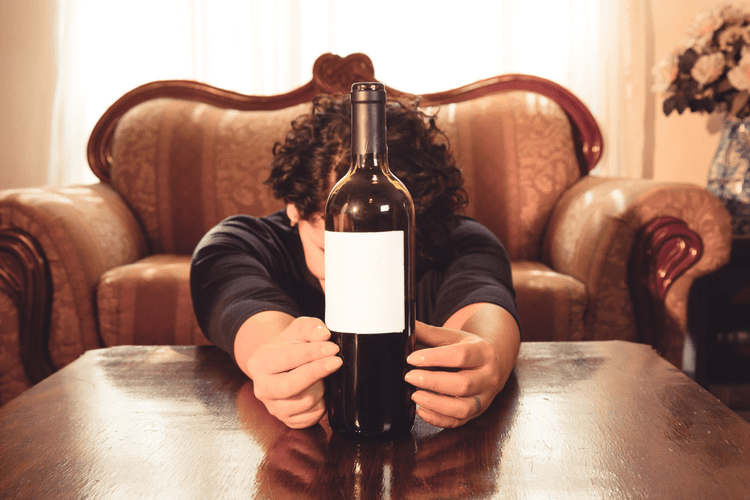Contents
When you tend to drink at a certain time of day, doing something else is one of the best ways to distract you from old habits to help break that pattern. Activities that get you out of the house and moving often help most. Alcohol in your house can tempt you when you’re trying to quit. If you feel like having a drink, knowing you’ll have to go out and make a purchase can deter you long enough to find a good distraction. When alcohol makes up part of your typical routine, drinking can become something of an automatic response, especially when you feel stressed or overwhelmed.
- At the start of his running journey, Robertson said he “couldn’t run a quarter-mile without feeling like I was absolutely dead.”
- Drinking on an empty stomach is never a good idea, so make sure you eat food when you drink.
- Exploring, in writing, what you find difficult and when you most want to drink can help you notice patterns that offer more insight into your alcohol use.
- Acupuncture may help reduce anxiety and depression.
- The good news is with professional help through our Florida alcohol rehabilitation program, you don’t have to be just another statistic.
- On the other hand, stopping drinking gives your skin time to recover.
The symptoms listed above may be a sign of a severe form of alcohol withdrawal called delirium tremens, or DTs. This rare, emergency condition causes dangerous changes in the way your brain regulates your circulation and breathing, so it’s important to get to the hospital right away. Distance yourself from people who don’t support your efforts to stop drinking or respect the limits you’ve set. This may mean giving up certain friends and social connections. After three months, I will cut back my weekend drinking even more to a maximum of two drinks per day and three drinks per weekend.
Once you’ve made the decision to change, the next step is establishing clear drinking goals. The more specific, realistic, and clear your goals, the better. You need to find new hobbies to take the place of things you used to do while drinking. You need to find new activities and people to socialize with if all of your previous social activities revolve around boredom. Fear is powerful, but fear alone is inadequate.You also need a reason that will help keep you from having relapses, dealing with withdrawal, and staying committed to your goal of sobriety. A healthy fear of the consequences is important, but using them alone to curb your alcohol consumption has another serious drawback.
I’m not just referring to how I behaved while under the influence, but my general demeanor, reputation, and options for life were all begging for a massive change. The research shows that the numbers are even worse for people in recovery from drug addiction. People dealing with less obviously destructive addictions like pornography or food typically fare even worse.
Health Solutions
If that’s not possible, admit your desire to drink and don’t judge yourself for it. Call or text a friend and have your goals handy to remind yourself why you’ve dropped drinking. Alcohol abuse and addiction doesn’t just affect the person drinking—it affects their families and loved ones, too. Watching a family member struggle with a drinking problem can be as heartbreakingly painful as it is frustrating. But while you can’t do the hard work of overcoming addiction for your loved one, your love and support can play a crucial part in their long-term recovery.
Binge drinking has been known to cause problems ranging from alcohol-induced depression and anxiety to blackouts and memory loss. Additionally, alcoholics may experience mood swings, angry outbursts, and thoughts of suicide. In the long run, some chronic alcohol users even suffer brain damage. Liver disease and liver cancer are only some of the possibly fatal effects of alcohol abuse.
How To Stop Drinking Alcohol
Loosid community members also operate 24/7 hotline support groups to help people with recovery, relapse, getting through bad days, resisting urges, and dealing with holidays or other triggers. WFS programs are based on “acceptance statements” that help women to achieve emotional and spiritual growth and engage in better thinking patterns. Members are given a list of 13 statements that they must review each morning. They are also asked to choose one statement for the day that they will focus on.

Therapy can help you identify the root causes of your alcohol use, repair your relationships, and learn healthier coping skills and how to deal with triggers that could cause you to relapse. Intensive outpatient programs focus on relapse prevention and can often be scheduled around work or school. alcohol allergy with hives Residential treatment involves living at a treatment facility while undergoing intensive treatment during the day. It’s much easier to avoid drinking if you don’t keep temptations around. I will limit my Saturday and Sunday drinking to no more than three drinks per day or five drinks per weekend.
How to talk to your doctor about quitting alcohol
If you have depression, anxiety or another mental health condition, you may need talk therapy , medications or other treatment. Treatment for alcohol use disorder can vary, depending on your needs. Treatment may involve a brief intervention, individual or group counseling, an outpatient program, or a residential inpatient stay. Working to stop alcohol use to improve quality of life is the main treatment goal. Your health care provider may do a physical exam and ask questions about your health.

If you’re having a hard time sticking to your goal or just want some extra guidance, consider reaching out for professional support. It’s common to have a difficult time when making big changes, but good self-care practices can help you manage overwhelming feelings and take care of your mind and body. Choosing the right replacement beverage can help you stand firm in your desire to stop drinking. Plain water might offer plenty of health benefits, but it’s admittedly not the most interesting choice.
Maybe your partner, sibling, or roommate is also thinking about making a change. Changing drinking habits together allows you to support each other while also boosting your motivation and accountability. By opening up about your relationship with alcohol, you alcohol can trigger headaches and migraines might also encourage others to explore their own drinking habits. It’s possible to develop a better relationship with alcohol and make more mindful, informed choices about drinking without total sobriety. You might know you want to give up alcohol entirely.
What Are the Side Effects of Quitting Drinking?
This may mean making major changes to your social life, such as finding new things to do with your old drinking buddies—or even giving up those friends and finding new ones. Cravings for alcohol can be intense, particularly in the first six months after you quit drinking. Good alcohol treatment prepares you for these challenges, helping you develop new coping skills to deal with stressful situations, alcohol cravings, and social pressure to drink. Some people are able to stop drinking on their own or with the help of a 12-step program or other support group . Others need medical supervision in order to withdraw from alcohol safely and comfortably.
Here’s some information to help you get ready for your appointment, and what to expect from your health care provider or mental health provider. Women for Sobriety is a nonprofit organization offering a self-help group program for women who want to overcome alcoholism and other addictions. It focuses on developing coping skills related to emotional and spiritual growth, self-esteem, and a healthy lifestyle. Whether you choose to tackle your alcohol addiction by going to rehab, getting therapy, or taking a self-directed treatment approach, support is essential. Recovering from alcohol addiction or abuse is much easier when you have people you can lean on for encouragement, comfort, and guidance. There’s no magic bullet or single treatment that works for everyone.
Unfortunately, the healing process is not always comfortable. Much like how a wound will hurt and itch as it starts to get better, your body may cycle through unpleasant side effects as it repairs from alcohol damage. It’s important to manage lifestyle and additional risk factors throughout the quitting process to speed up healing. “When I was drinking, I took that to the extreme,” he said. “I want to change my life, and I took that to the extreme as well. So I started running.”
You may have some negative stereotypes about people who drink too much, but addiction and binge-drinking are health issues that can affect anyone. The Centers for Disease Control and Prevention recommend women drink no more than one alcoholic beverage per day, while men shouldn’t drink more than two per day. If you struggle to drink within these guidelines or frequently consume more than recommended, it’s probably time to talk with your doctor. Information provided on Forbes Health is for educational purposes only. Your health and wellness is unique to you, and the products and services we review may not be right for your circumstances. We do not offer individual medical advice, diagnosis or treatment plans.
Benefits of NOT drinkingMy relationships would probably improve. Benefits of drinkingIt helps me forget about my problems. While there best books on addiction recovery is a shift in how society treats and views alcohol, it’s big business for everyone–even those charged with policing its use.
